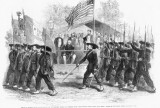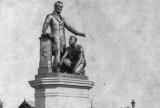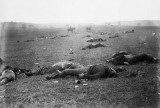Growing Up at Gettysburg
My Family’s Antique Shop by the Historic Battlefield Has Helped Customers—and Me—Connect to Our Nation's History
“Do you have the kind of bullet that killed Lincoln?” asked a tourist buying a Derringer pistol, wearing a God Bless America t-shirt. I looked up from the counter a bit confused. I’d come in late after watching Steven Spielberg and Doris Kearns Goodwin speak at Gettysburg’s Soldiers’ National Cemetery for the 149th Remembrance Day, the anniversary of Abraham Lincoln’s address. I was cold and my coffee had only begun to wake me up.
“It should be the size of any pistol bullet,” I said. “I’ll look up the caliber …










